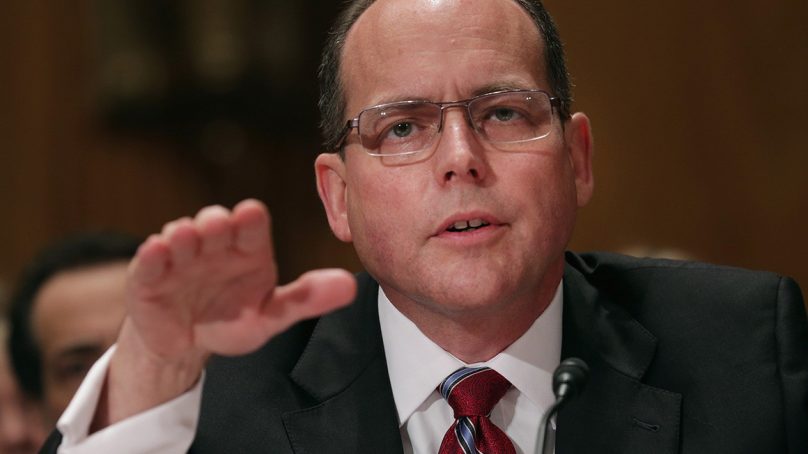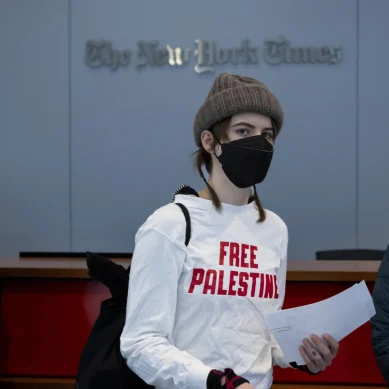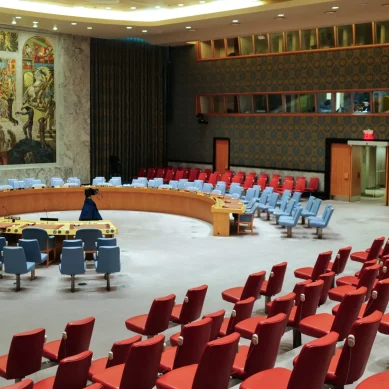
A long-percolating conflict between two prominent alumni of the CIA’s secretive internal watchdog office has burst into public view, creating a headache for the House’s investigation of the January 6 Capitol riot.
David Buckley is now the top Democratic staffer on the select committee investigating the insurrection. But 11 years ago, he was a CIA inspector-general who made clear upon taking office that he wanted a cultural shift: Buckley sought a more aggressive approach to rooting out alleged wrongdoing in the agency, prioritising probes that could lead to criminal prosecutions over inside-the-family resolutions, according to multiple people familiar with the dynamics there.
The shift Buckley imposed was risky. And a dust-up inside the cloistered spy agency during his tenure there – linked to a case involving $3 million and numerous meals at Hooters – shows what’s at stake when government watchdogs disagree over who counts as a whistle-blower.
It’s a question Buckley may be called on to judge as part of his role in the January 6 probe, and whistle-blower advocates warn that his reputation could deter potential witnesses from coming forward.
“I as a whistle-blower attorney would definitely need to weigh the costs and benefits of recommending to a client that they go to this committee while David Buckley is the staff director,” Kel McClanahan, a lawyer who represents national security whistle-blowers, said in an interview. “Especially if those clients are of the type that don’t have strong whistle-blower protections, like Capitol Police or Intelligence Community employees.”
Buckley’s past already has worked its way into the January 6 investigation once thus far. Andrew Bakaj, the former CIA IG office employee who, like Buckley, was connected to the Hooters-related probe, is now a prominent whistle-blower attorney who represented two of the four law enforcement officers who testified at the select panel’s first hearing. The two men’s years-old dispute created a dramatic subplot for the proceedings.
Despite the whistle-blower advocates urging the select panel to replace Buckley, there are no signs that House Democrats are considering it or have lost any confidence in him.
“David Buckley has served this country for more than 30 years to protect American security and democracy, and he’ll continue to do so on the Select Committee’s staff,” said Tim Mulvey, a spokesman for Democrats on the January 6 panel, said via email. “He understands as well as anyone the importance of whistle-blowers in providing information to keep us safe and to keep our government accountable.”
Mulvey added, “The years-old situation conveniently resurfacing now dealt with possibly unlawful handling of information that could have jeopardised one of the CIA IG’s most important and sensitive investigations in recent years. Mr Buckley did his job to protect the integrity of that effort, and since these events unfolded, a federal court has ruled that the precise sort of action he took does not constitute retaliation.”
That court ruling did not involve Bakaj’s case. And he has been unequivocal. “There can be no credibility without integrity,” he tweeted this week about the select committee.
House Republicans, while torching the January 6 investigation as partisan, don’t appear interested in trying to turn Buckley into a political liability for the committee.
But Mark Zaid, a national security lawyer who represents Bakaj and has worked with him to represent other whistle-blowers, said the Committee’s defence of Buckley is troubling. Zaid and Bakaj represented the whistle-blower who triggered Trump’s first impeachment, and Zaid said he would be “hesitant” to bring other whistle-blowers before the committee now.
“The Committee’s defence of Buckley embarrassingly reveals that the Democrats’ support of the IC whistle-blower, who Andrew and I represented, was just a partisan exercise to get Trump,” Zaid said.
“Once a whistle-blower issue conflicts with their political agenda, the whistle-blower apparently gets sacrificed. Given this position, the Committee is continuing the illegal reprisal against Andrew.”
The backstory of the Buckley-Bakaj conflict began in 2007, when sales teams at multiple government contracting firms were showering perks on CIA officials, according to a whistle-blower complaint filed in 2011.
Among the gifts CIA officials received were tickets to baseball games, VIP access to NASCAR races, hunting trips, and dinners. One CIA official had such a penchant for Hooters that a contracting company named one of its products the “HTRS cable tray.” In return, the companies got lucrative deals for the cabling and wiring of CIA buildings.
But for the contractors and CIA officials involved, the scheme ended badly when that whistle-blower filed a lawsuit laying out the kickback allegations. The whistle-blower’s case was persuasive enough that the companies settled for $3 million.
Buckley, the top CIA watchdog at the time, touted the office’s work in a press release that vowed his office would work with the Justice Department “to ensure that illegal acts are addressed in an effective manner.”
- A Politico report











